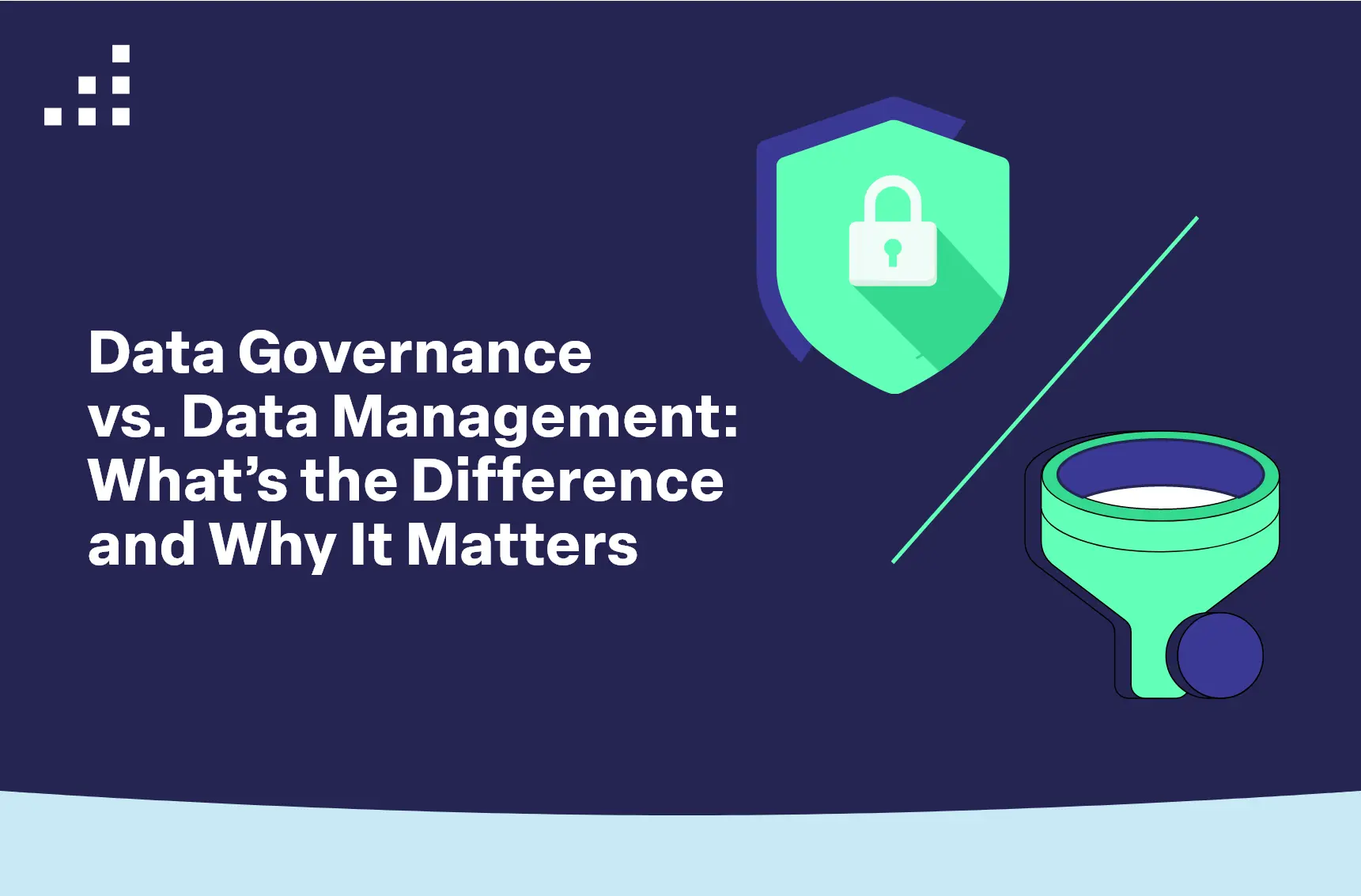As organizations grow and their data volumes increase, so does the complexity of handling that data effectively. This brings up a common question: data governance vs. data management—what’s the difference, and why does it matter?
Understanding how these two concepts work individually—and together—is essential for businesses looking to improve decision-making, reduce risk, and unlock the full value of their data. In this post, we’ll break down the differences, explain their overlap, and show how platforms like BUCS Analytics support both.
In this article, we’ll explore:
What is Data Governance
What is Data Management
Data Governance vs. Data Management
Why it Matters for Your Business
How Bucs Analytics Bridges Governance and Management
What is Data Governance?
Data governance refers to the framework, policies, and standards that determine how data is owned, accessed, and protected across an organization.
Key Aspects of Data Governance:
- Data ownership and stewardship
- Policy enforcement
- Data quality standards
- Compliance and regulatory controls
- Access permissions and auditability
In short, governance answers the question: “Who is responsible for what data, and how should it be used?”
It ensures data is trusted, consistent, and compliant with both internal policies and external regulations.
What is Data Management?
Data management, on the other hand, is the operational side of handling data. It includes the processes, systems, and tools used to store, organize, integrate, and maintain data on a day-to-day basis.
Key Components of Data Management:
- Data integration
- Storage and architecture
- Data cleansing and deduplication
- Data cataloging
- ETL processes (Extract, Transform, Load)
Data management focuses on making data available, accessible, and usable for business operations and analytics.
Data Governance vs. Data Management: Side-by-Side Comparison
Feature | Data Governance | Data Management |
|---|---|---|
Focus | Policy, ownership, and oversight | Operations, processing, and usability |
Goal | Ensure trustworthy, secure data | Make data available and usable |
Key Stakeholders | Compliance officers, data stewards | IT, data engineers, analysts |
Common Outputs | Policies, roles, audit trails | Databases, reports, integrated platforms |
Tools/Systems | Governance frameworks, access controls | ETL pipelines, data warehouses, dashboards
|
While distinct, the two are deeply interrelated. Effective data governance is only possible when strong data management practices are in place—and vice versa.
Why It Matters for Your Business
Real-World Example: Why Data Governance vs. Data Management Matters
Imagine a mid-sized manufacturing company with data coming in from finance, operations, sales, and inventory systems—each managed independently without a unified framework. Without data governance, different departments define and categorize data differently, leading to conflicting reports and metrics that don’t align. Meanwhile, the lack of strong data management practices means outdated information is used in forecasts, and manual reconciliations become a regular fire drill before board meetings. Security risks also grow, as sensitive data is accessed without oversight. The result? Leaders waste time questioning the validity of reports instead of making confident, timely decisions. In contrast, when data governance and data management are aligned—defining clear data ownership, standardizing processes, and automating data flows—teams operate from a single source of truth. Decisions are faster, audits are smoother, and data becomes a strategic asset rather than a liability.
How BUCS Analytics Bridges Governance and Management
BUCS Analytics is more than a reporting tool—it’s a robust platform that helps businesses standardize their data pipelines while also enforcing governance best practices.
✅ Governance with Visibility
BUCS gives companies control over who sees what, with user-level permissions, audit trails, and centralized policy application across systems.
✅ Management with Efficiency
From cleansing and transforming data to integrating systems and creating dashboards, BUCS automates complex data management tasks.
✅ Trusted Insights at Every Level
Because BUCS handles both the how and the why of data, your reports are not only accurate—they’re also aligned with business rules and compliance requirements.
Whether you’re scaling your reporting infrastructure or dealing with fragmented data, BUCS provides the foundation to govern and manage with confidence.
Final Thoughts
The debate of data governance vs. data management isn’t really about choosing one over the other. Instead, it’s about understanding that both are essential to building a healthy, high-performing data environment.
If your business is serious about leveraging data to drive decisions, you need the tools and structure to support it—top to bottom.
That’s where BUCS Analytics comes in.
